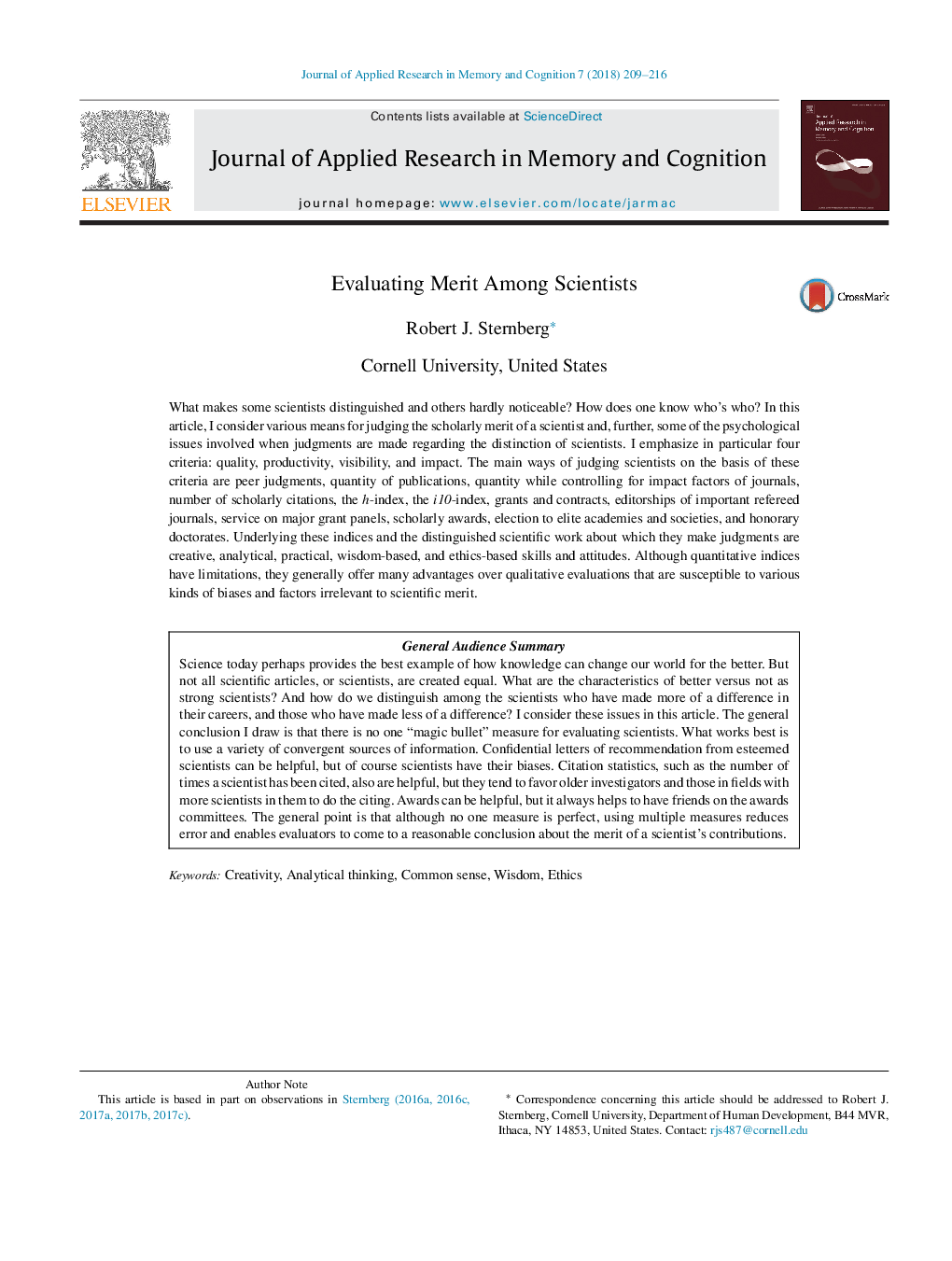| Article ID | Journal | Published Year | Pages | File Type |
|---|---|---|---|---|
| 7241606 | Journal of Applied Research in Memory and Cognition | 2018 | 8 Pages |
Abstract
What makes some scientists distinguished and others hardly noticeable? How does one know who's who? In this article, I consider various means for judging the scholarly merit of a scientist and, further, some of the psychological issues involved when judgments are made regarding the distinction of scientists. I emphasize in particular four criteria: quality, productivity, visibility, and impact. The main ways of judging scientists on the basis of these criteria are peer judgments, quantity of publications, quantity while controlling for impact factors of journals, number of scholarly citations, the h-index, the i10-index, grants and contracts, editorships of important refereed journals, service on major grant panels, scholarly awards, election to elite academies and societies, and honorary doctorates. Underlying these indices and the distinguished scientific work about which they make judgments are creative, analytical, practical, wisdom-based, and ethics-based skills and attitudes. Although quantitative indices have limitations, they generally offer many advantages over qualitative evaluations that are susceptible to various kinds of biases and factors irrelevant to scientific merit.
Related Topics
Social Sciences and Humanities
Psychology
Applied Psychology
Authors
Robert J. Sternberg,
